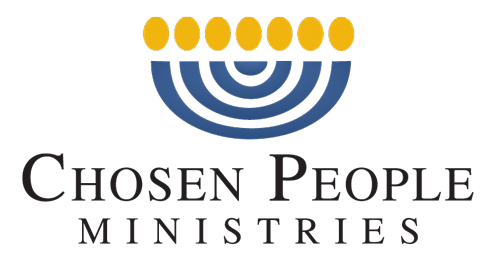Messiah: The Offering for My Sin
I was born in Tehran, Iran and raised in a wonderful, traditional Jewish family. My parents were not very religious, but we kept all the Jewish holidays. My favorite was Passover; it usually fell around the time of the Persian New Year, which was a national holiday. As a child, I was curious about God and wanted to learn to pray. I remember approaching the rabbi during shiva, the traditional Jewish seven-day initial mourning period, after my grandfather had died, and he taught me to recite the shema (Hear O Israel). I was also interested in reading the Jewish Bible, but I didn’t have a Persian translation.
We left Iran after the Islamic revolution of 1979, when I was 16 years old. Once in the United States, I became friends with Christians for the first time in my life. Their belief in Jesus as the promised Jewish Messiah bothered me, so I set out to study the Hebrew Scriptures and the Messianic prophecies to disprove what they claimed had been fulfilled in Jesus’ life.
I could accept that my good works and my attempt to follow the commandments were not enough to please God and that I needed an atoning sacrifice as a sin offering. As it says in Leviticus 17:11, “…it is the blood that makes atonement for the soul.” Our Iranian Jewish practice of slaying a chicken every year at Yom Kippur for each member of our family as a sin covering confirmed this need to me.
It was Isaiah 53 that proved to me that Messiah had died for my sins. Verse 5 says, “But he was wounded for our transgressions, He was bruised because of our iniquities; The chastisement for our peace was upon Him, and by His stripes we are healed.”
On June 19, 1980, as I was pondering all these things, I confessed to God that I believe Jesus is my Messiah, my sin bearer. The result was life-changing, as God became a personal friend and a guide in my life.
***
Finding New Life in a New Land
I was born into a Conservative Jewish family in Iran. The foundation of my faith was set when I was a child, as I went to Jewish school and had the privilege of attending synagogue for morning prayers during the week. At home, our family observed ancient traditions. My parents used to have a hen sacrificed for the family for Yom Kippur (Day of Atonement) and had the rabbi pray to transfer our sins to the chicken, which cemented the words of the Torah more clearly in my mind.
At the time, the Shah (king) of Iran was still in power and Jews were treated well and prospered under his regime. Towards the end of my high school years, my parents sent me to the United States in order to complete my education— after which I would return to Iran to work in my father’s business. During high school and college, I began wandering away from faith in God as I watched my American Jewish classmates who did not believe in God and who had mostly let go of their Jewish traditions and practices.
While I was attending college, the ayatollahs took over Iran. I ended up applying for refugee status and remained in the U.S. After graduating from college and getting a job, I met a few business associates who were born-again Christians. At first I was afraid of them “converting” me and had a lot of misconceptions about them—but the more I saw the integrity in their business dealings and the love they showed me, the more I developed a trust which shook off all the misconceptions. The biggest challenge was their claim that Jesus is God who came to earth in the flesh.
Wrestling with the Message of Salvation
I started reading the Bible in order to equip myself. While reading Genesis, I came across the passage where Jacob wrestled with a man during the night and later said, “I have seen God face to face, and my life is preserved…” (Gen. 32:22-31). As I continued to read, I found more passages where God had appeared in the form of a man. At one point, a friend pointed out Isaiah chapter 53, which convinced me that the Jewish Jesus of the New Testament is the Messiah who died for my sins.
After coming to faith in the Jewish Messiah, I experienced much resistance from my family. Yet miraculously, God arranged for me to meet my wife, who is also an Iranian Jewish believer. The biggest change in my life has been learning to be dependent on Him even in the smallest daily decisions, where His guidance has led to many blessings. Best of all is the knowledge that as much as I may miss the country of my birth, Iran, or Israel—which my heart considers home—my real home is with Him in Heaven.


